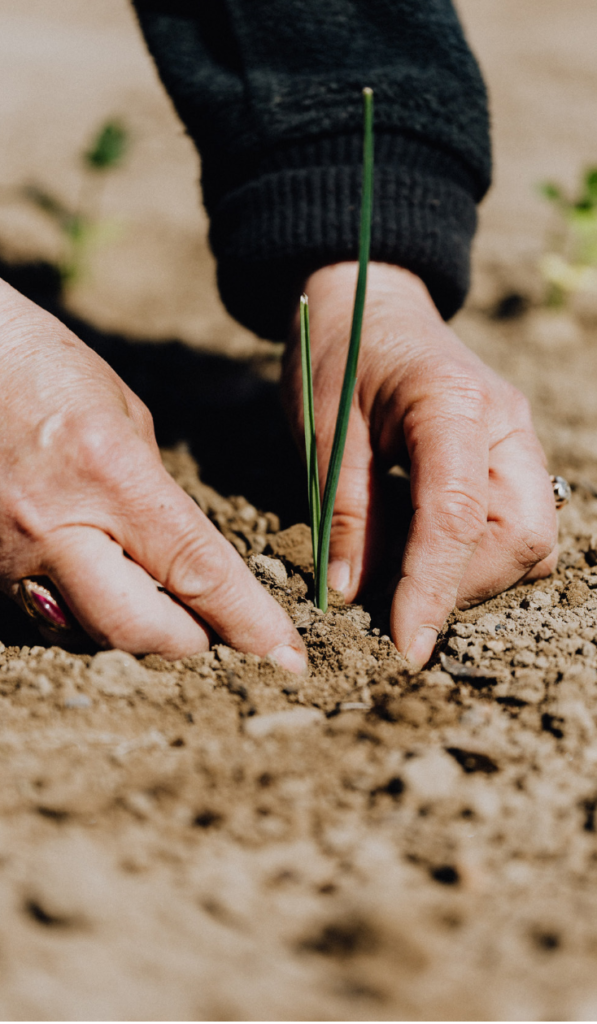Christianity’s goal is not escape from this world. It loves this world and seeks to change it for the better.
Marcus J. Borg, Speaking Christian: Why Christian Words Have Lost Their Meaning and Power — And How They can be Restored (New York: HarperOne, 2014), 193.
All humans have this thing in common: we each have a way of seeing life and making sense of the world and our place within it. Each human has a worldview, even if one struggles to explain one’s own worldview to others. Oftentimes, worldviews are rooted in faith. According to Brian J. Walsh and J. Richard Middleton, there are four fundamental questions that all humans seek to answer, consciously or unconsciously: we want to know who we are, where we are, what is wrong, and what is the remedy.[2] Many Christians share a biblical worldview and have a particular way of answering these basic questions, which hopefully can guide collective efforts to solving the crises of the world. Borg’s quote above highlights that the Christian worldview does not promote an escapist way of viewing life on earth. Rather, it fosters a deep care for creation and serves as an impetus to have a positive impact on the world. No matter one’s faith tradition, or lack of one, there is a case to be made that all things are sacred. As human beings, we are collectively called to treat the land we inhabit with respect and care.

As Steven Bouma-Prediger points out in his book For the Beauty of the Earth, the evidence is clear that “creation is groaning.”[3] With an increasing population and an unsustainable dependence on fossil fuels, overpopulation and overconsumption are two major environmental concerns of the modern world. Moreover, roughly one million plant and animal species — twenty-five percent of assessed species on earth — currently face an imminent threat of extinction.[4] Creation is definitely groaning. The roots of ecological degradation are very complex, but a religious response to the groaning of creation is consistent with a Christian worldview. While Christians are by no means the only contributors to ecological harm, Christians are set apart to solve such problems because God calls us to be stewards of creation. Being concerned about current environmental degradation is especially important for Christians because God calls us to be earthkeepers, people who take care of the earth God has gifted and entrusted to us.
To answer Walsh and Middleton’s four fundamental questions and understand the Christian calling to be earthkeepers, it can be helpful to imagine the biblical Christian worldview as a drama divided into three acts, consisting of creation, fall, and redemption. The creation story serves as the basis of the Christian faith and marks the beginning of both human life and the earth we inhabit, so it is critical in answering who and where we are as Christians. Genesis 1:26–28 reveals that humans are made in God’s image. Furthermore, God commands humans to rule over the earth and its creatures as caretakers and culture-formers. Through reading the creation story, Christians know we inhabit a world God created out of nothing, and we are continually dependent on our Creator. This dependence on the divine makes humans who we are. We are created by God and in the image of God. Who we are is intricately linked to where we are. We are on an earth that is also a creative product of God. Humans can see glimpses of God through the earth because it is all divinely created. Humans and the earth share a Creator. By reading the creation story with an ecological perspective, it is evident that by being made in God’s image, humans are meant to be earthkeepers, ones who value and protect the beautiful earth around us.
Next, it is important to understand the second act, the Fall, in order to answer the question of what is wrong with the way humans are living. Because of who we are, humans need to have something at the center of our life to serve. Walsh and Middleton say “we are a broken people who have served idols rather than reflected the image of God.”[5] Humans were created in the image of God, yet humans fall short of God’s image when we value possessions, money, and other worldly things instead of reflecting God’s image by caring for each other and caring for the earth. Reflecting the image of God means valuing the calling God gave humans to care for creation. It means acknowledging humans’ dependence on God and making God the center of our lives. The Fall highlights humans’ rebellion against God and humanity’s transition from worshiping the Creator to worshiping creation. The result of sin is universal and leads to our alienation from God, other humans, and creation itself. Sin and alienation are what is wrong, according to the biblical Christian worldview. Given the context of the creation story, it is evident that exploitation of the earth is sinful and breaks the relationship between humans, other living creatures, the earth, and even our relationship with the Creator.
Finally, it is necessary to understand the remedy for the problems laid out. The final act of the drama is redemption. We first need to be aware of the redemptive history through the redemptive covenants God made with Noah, Abraham, Moses, and David. These covenants all laid the foundation for the New Covenant of Jesus. Jesus’ death and resurrection achieves redemption by restoring the image of God and renewing the Church. It can be powerful to remember that “no aspect of our cultural life is exempt from [God’s] redemptive plan and righteous rule.”[6] God knows no boundaries, and no sin is irredeemable. All of creation can be reconciled. As God’s people, Christians are called to pursue reconciliation in all that we do. Specifically in regards to environmental problems, Christians need to acknowledge harmful environmental actions and then take active steps to create a more sustainable future. Given the creation story, a Christian worldview should encourage an ethic of caring for creation, instead of being apathetic about environmental concerns.
After understanding this drama, Christians can embrace a more holistic perspective of the importance of caring for creation and fulfilling our calling to be agents of reconciliation and positive change. It is not an easy task, but understanding who and where we are can be the first step in protecting creation. Walsh and Middleton point out that “the biblical idea of stewardship balances authority with servanthood.”[7] This is striking as many Christians abuse the earth by thinking they are the ultimate authority rather than God. Yet God gifted humans with the power and ability to respond to creation, so humans are not merely servants either. The tension between authority and servanthood reminds me that humans are active participants in the story of God, capable of abusing this power if we forget who we are, where we are, what the problem is, and what we are called to do.
Additionally, gratitude can be a persuasive reason to care for the earth. God has provided humanity with many blessings, so a response of gratitude seems only appropriate. Humans can show gratitude for this wondrous earth by not exploiting it, but instead intentionally becoming earthkeepers who value God’s creation. During the 2021–2022 school year, Hope College President Matt Scogin gave a series of chapel sermons[8] rooted in the vision of Hope Forward. His emphasis on the words, “You are covered; now go and live differently” has stuck with me as I reflect on what it means to have a grateful heart. Despite my own sins, God has me covered in all areas of my life, and for that I am infinitely grateful. My response to this ever-present shelter seems inadequate, but I know I am here on purpose for a purpose, reflecting God’s own image. Being an earthkeeper is a meaningful response to the immense gratitude I feel. Being an earthkeeper is fulfilling my calling to live differently because, sadly, all humans are somehow participating in the exploitation of God’s creation. To me, living differently means living with a grateful heart, filled with love for God, my family, my friends, and all of creation. Gratitude can be a part of the remedy. Gratitude can be a response to sin by acknowledging the endless grace found within the story of creation, the Fall, and redemption.
The Christian worldview creates space for Christians to positively influence the world and be caretakers of the earth. Reflecting on the Christian worldview can limit environmental exploitation by reminding Christians that God calls humans to care for the earth. Additionally, it is helpful to remember the coming renewal of heaven and earth. Overall, the biblical Christian worldview connects back to Borg’s quote because knowing who we are, where we are, what is wrong, and what the remedy is rejects escapism. This worldview emphasizes that Christians are called, right here and right now, to serve God in all areas of our lives, especially through caring for creation.

Anna Whittle ’25
Anna is majoring in Environmental Studies and Women’s & Gender Studies. She is from Louisville, Kentucky. We thank Dr. Steve Bouma-Prediger (Religion and Environmental Studies) for his guidance with Anna’s piece.
[2] Brian J. Walsh and J. Richard Middleton, The Transforming Vision: Shaping a Christian World View (Downers Grove: InterVarsity Press, 1984), 35.
[3] Rom. 8:22, quoted in Steven Bouma-Prediger, For the Beauty of the Earth: A Christian Vision for Creation Care, 2nd ed. (Grand Rapids: Baker Academic, 2010), 24.
[4] S. Díaz et al., “Summary for Policymakers of the Global Assessment Report on Biodiversity and Ecosystem Services” (IPBES: 2019), 11-12, https://zenodo.org/record/3553579.
[5] Walsh and Middleton, The Transforming Vision, 69.
[6] Walsh and Middleton, The Transforming Vision, 80.
[7] Walsh and Middleton, The Transforming Vision, 59.
[8] See, e.g., Hope College, “President Scogin’s Chapel Message | ‘You are covered. Now go and live differently,’” YouTube video, September 22, 2021, https://www.youtube.com/watch?v=eJoYiX2jlhs&list=PLtkHbfXPm2VrhzHOOk4Vv3pylj4ZUajlM&index=5.


